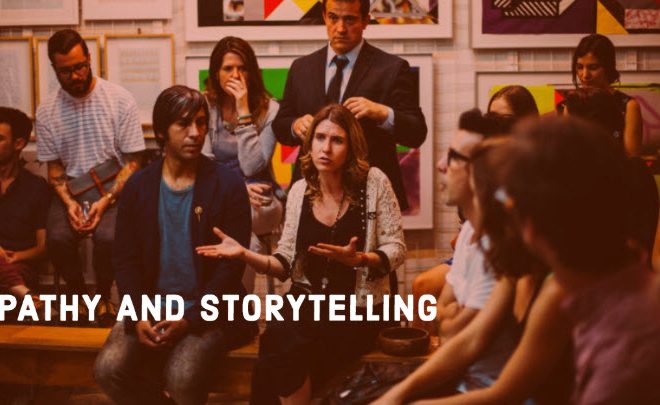
What Improv and Meditation Have In Common
Neuroplasticity is the scientific term for your brain’s flexibility or the brain’s ability to rewire itself. Our brains are constantly being shaped and reshaped by experiences, thoughts, and behaviors. The brain’s ability to evolve is amazing. It helps us develop from into adulthood and recover from injuries. But what happens when our brain becomes wired for something that isn’t particularly helpful, or is perhaps even damaging?
Brain In Charge
Just like building muscles in your body, anything that you do over and over with your brain is what will become stronger. Every thought and emotion creates a neural pathway, and that’s how repetitive thoughts and frequent emotions can become habits. As those neural pathways are reinforced, habits become harder to break. This is one way chronic stress, anxiety, depression, and other mental conditions can get worse over time. The good news is there are tools to help rewrite the neural pathways in the brain and effectively break the cycle over time.
Rewrite The Rules
One tool to take charge of neuroplasticity is meditation. Studies have shown meditation increases mindfulness, grows gray matter in the brain, and is very effective at creating new neural pathways. New neural pathways = new thoughts and new habits. Scientists are catching on that learning new skills and tapping into creativity can also effectively rewire the brain. Improv is an awesome, fun way to flex the brain’s flexibility; and improv might be more accessible or appealing than meditation to some people.
How Improv Rewires Your Brain
The act of improvisation is all about risk taking in a safe environment, which can bring up a lot of thoughts and emotions that people tend to ignore in everyday life. Improv requires participants to say “Yes!” to everything, including things that might feel uncomfortable or scary. For example, someone with social anxiety might have feelings of worry or dread come up in a large group. Confronting this fear in a safe setting can help the brain rewrite the habit of worry and create a new thought pattern of feeling safe. To recap, neuroplasticity means what you repeatedly use your brain for will get reinforced. So by trying something new, like improv, you can create new pathways in your brain and strengthen those pathways to alter how your brain works in a positive way.
Easier Than You Think
Improv is an excellent way for people to break out of their routines. People who come to improv for healing purposes should know that there won’t be a lot of talking or attention paid to their trauma, addiction, or anxiety. Improvisation is about having fun and can be a healthy distraction. The beauty is that when you’re distracted and enjoying playtime, your brain will be working hard for you, rewriting all the code. Just like in meditation, by staying in the moment, being mindful, and letting go, your brain can find new healthier thought patterns and you can enjoy a new tool for healing.
A few example modules include:
- Magic Words: Communication and “Yes, And”
- On the Spot: Public Speaking and Performance Anxiety/Stage Fright
- Heal Thyself: Humor and Self Care
- Let Go: Stress Reduction Through Improv
- Us is More: Group Mind and Team-Building
- Feelin’ It: Emotional Intelligence and Empathy
- and many more . . .
Related Posts
Categories
- Advocacy (1)
- Articulate (2)
- From the Advisory Board (1)
- Improv (13)
- Improv and Children (6)
- Improv Exercises (28)
- Improv Life Lessons (23)
- Interviews (2)
- ITG Blog (29)
- ITG Games and Exercises (26)
- ITG Podcasts (3)
- Look Who Gets It (10)
- Meditation (1)
- Neuroplasticity (5)
- Self-Care (9)
- Storytelling (3)
- Teamwork (6)
- Therapy (5)
- Yes, and (13)





